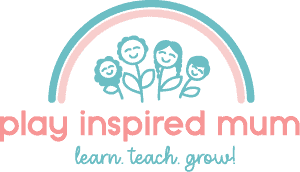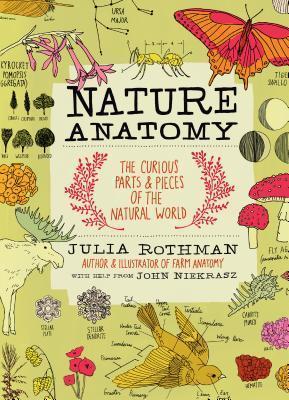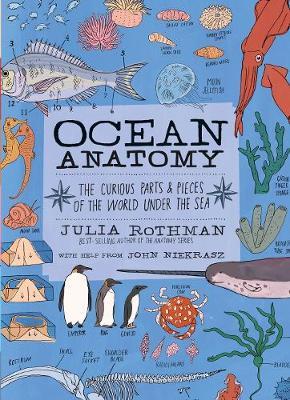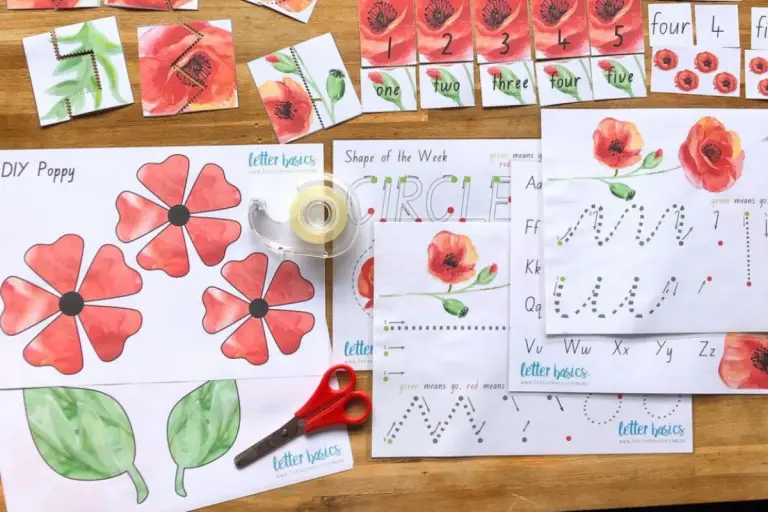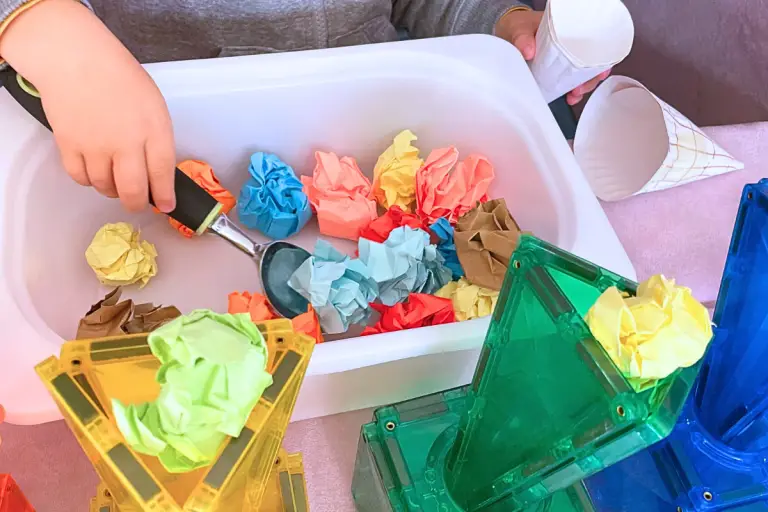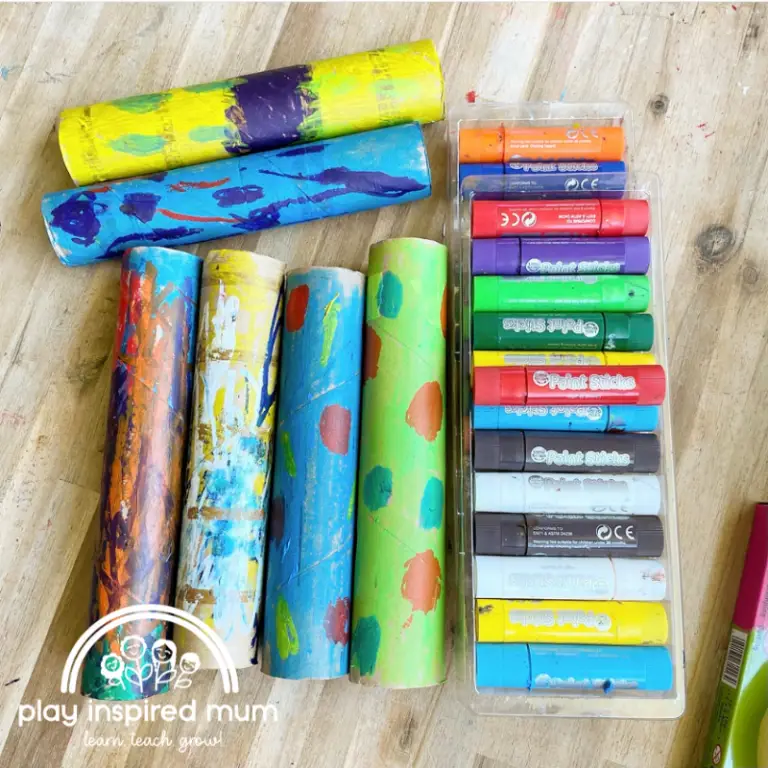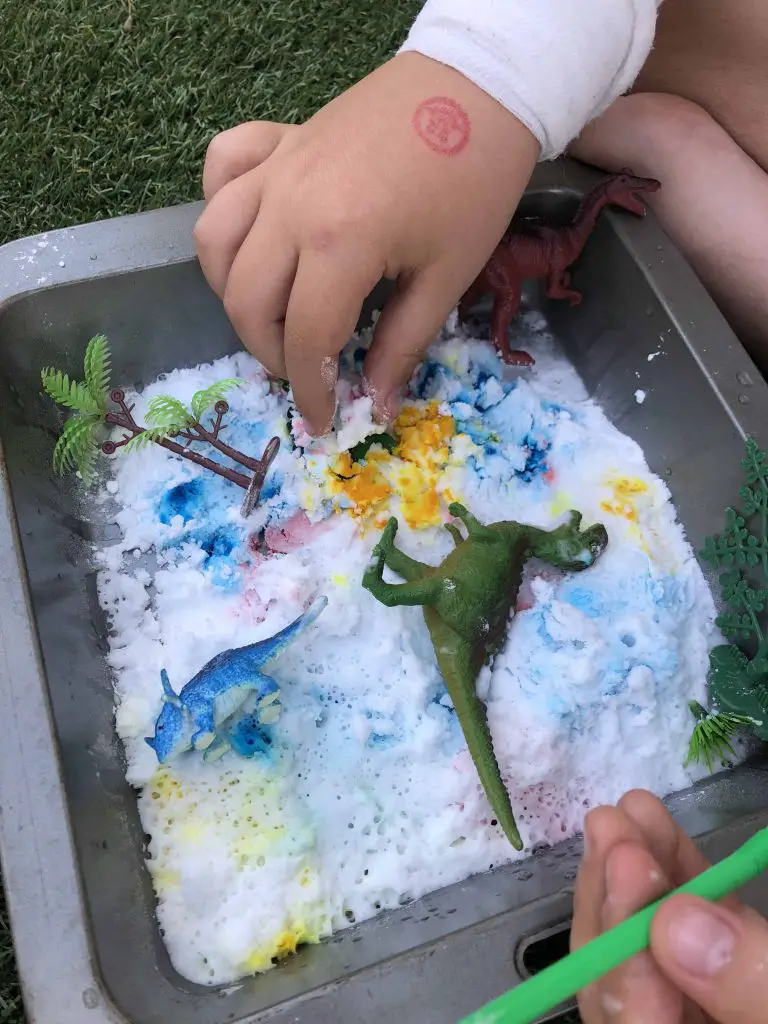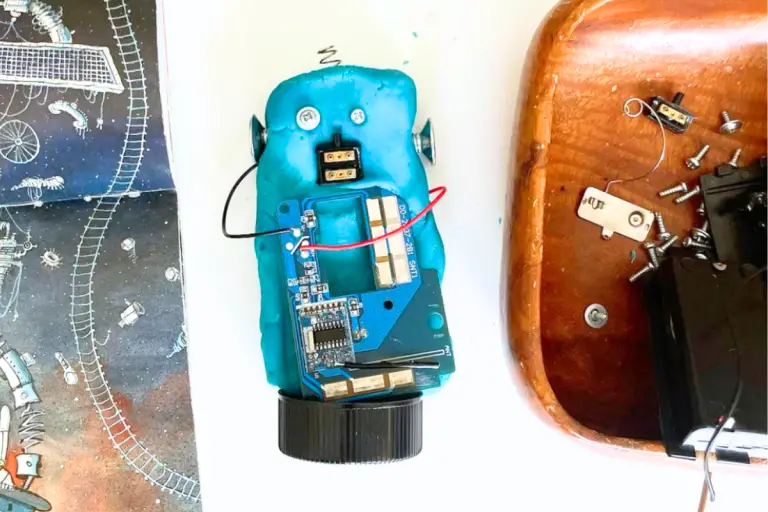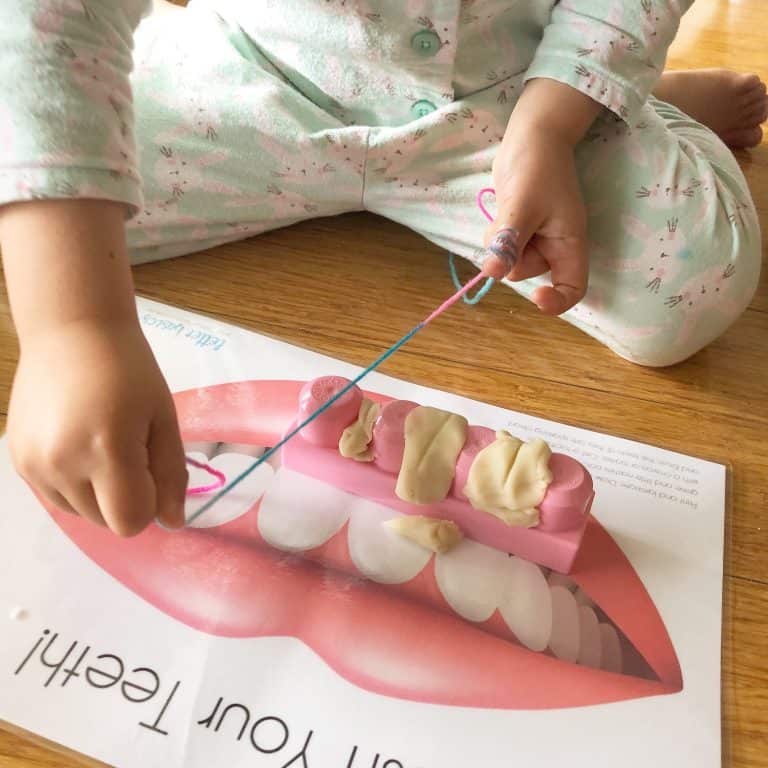DIY Nature Weaving Board for Nature Play
Disclosure: This blog contains affiliate links which I may earn a small commission from if you purchase through them, at no extra cost to you.
We are certainly very privileged to have an abundance of natural resources available within our community. We are surrounded by parks, bushland, and whimsical forests. Inspired by all the natural materials, we created our own DIY Nature Weaving Board for some nature play.

DIY Nature Weaving Board
Living in a society with marketing having such a heavy influence almost everywhere we turn, I really try and create a focus on utilizing what we have rather than what we can buy. A humble cardboard box can transform into so many different playthings for your toddler and preschooler. On this occasion, we made our own DIY Nature Weaving Boards.
What you need to create your own DIY Nature Weaving Board
- Cardboard
- Pencil
- Scissors/craft knife
- Hole punch
- String
- Tape
We used corrugated cardboard from a postage box as it had a bit more integrity than that of a cereal box or something similar.
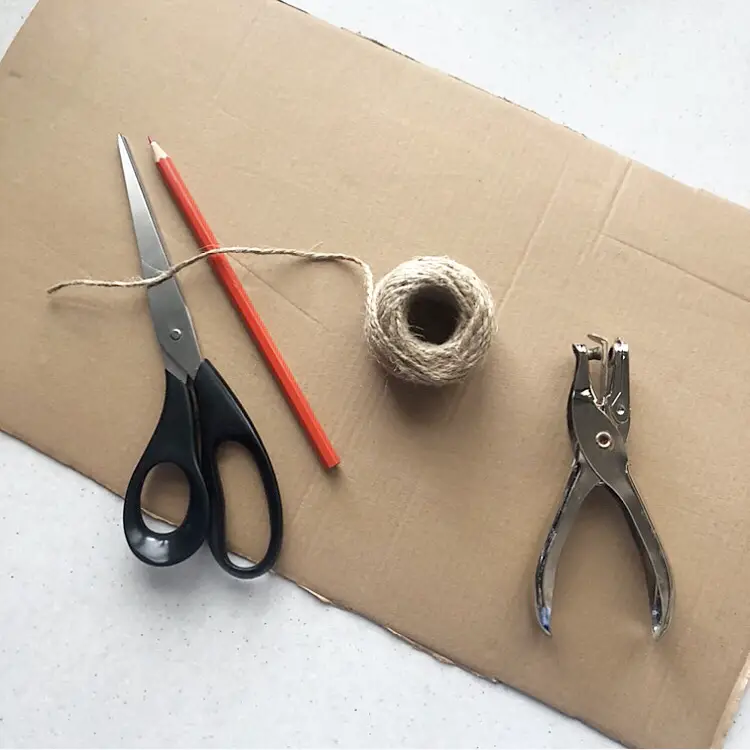
How to make your DIY Nature Weaving Board
Making your frame
Using your pencil create your design for your nature weaving board. I had a certain spot in mind that we were going to take ours. I knew we would have the opportunity to collect materials from trees and some feathers from the local residents. For this reason, we created some tree and duck-shaped frames.
What’s your toddler into at the moment? Do they love trains or dinosaurs? Why not make frames to suit their current interests?
Use your scissors or craft knife to cut out your weaving board.
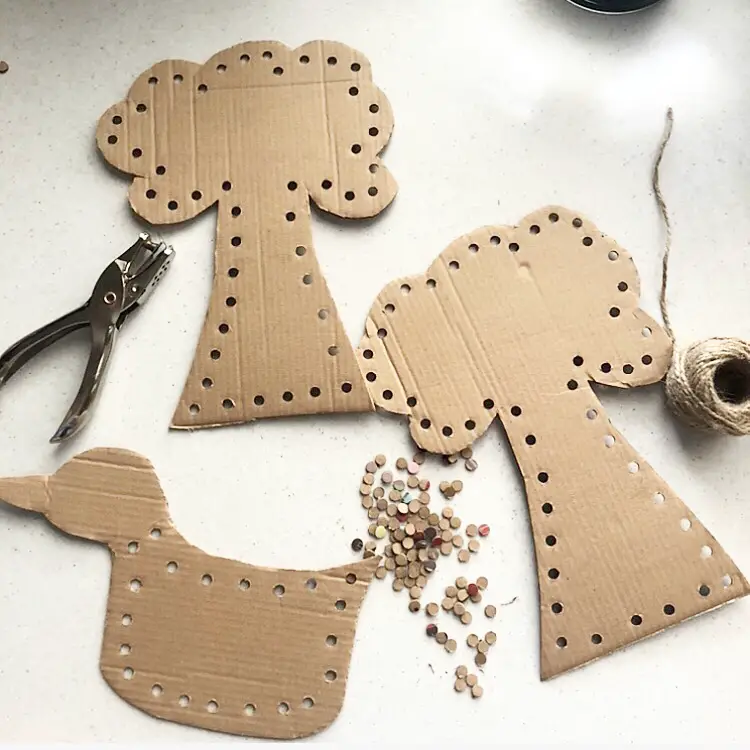
Threading your string
Once your design has been cut out, the next step is to punch the holes that you will be threading the string through. Using your hole punch, make holes about 1cm from the edge of your cardboard and about 1.5- 2 cm apart. Keep in mind the materials you are planning on collecting. Since we planned on collecting light, slim leaves, pieces of bark, and feathers, I kept the distance quite close. If you are planning on bulkier items, consider leaving larger gaps between your holes to retain more strength in your cardboard.
Cut your length of string and secure one end to your board. Thread the string through a hole and tie it in a knot and secure the end to the back of the board with some tape.
Wrap the loose end of the string with some tape to prevent it from fraying and making it easier to thread. If you feel like your child could thread the string, this is a great activity to practice quite a few developmental skills. In saying that it can be quite challenging for a young child so please only delicate the task if you feel they would be successful in completing it. Thread the string from one side of the frame to the other, before securing the loose end to the back of the frame with tape. When refining the tension of the string, it needs to be tight enough to hold the nature treasures but not so tight that they cannot fit between the board and the string.
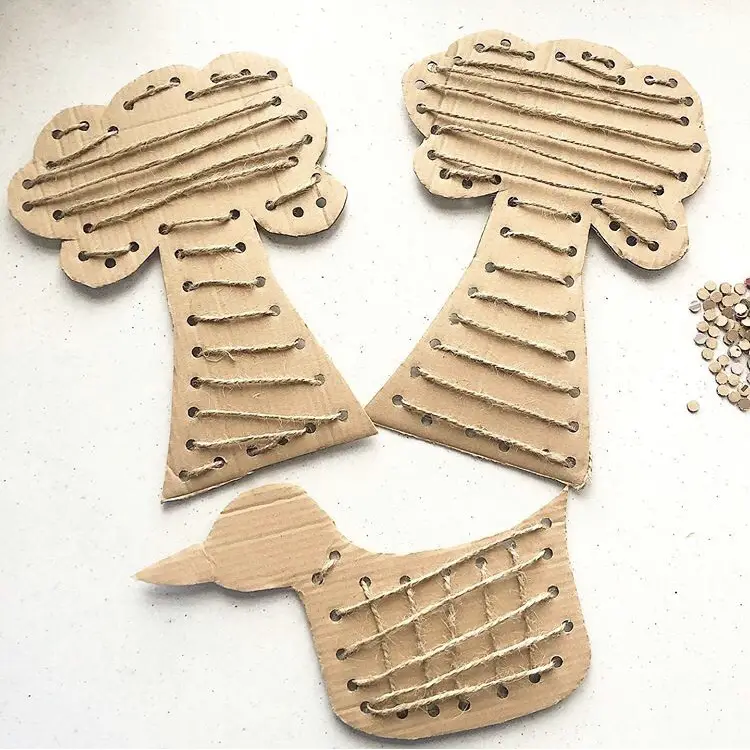
How to use your DIY Nature Weaving Board
Armed with our
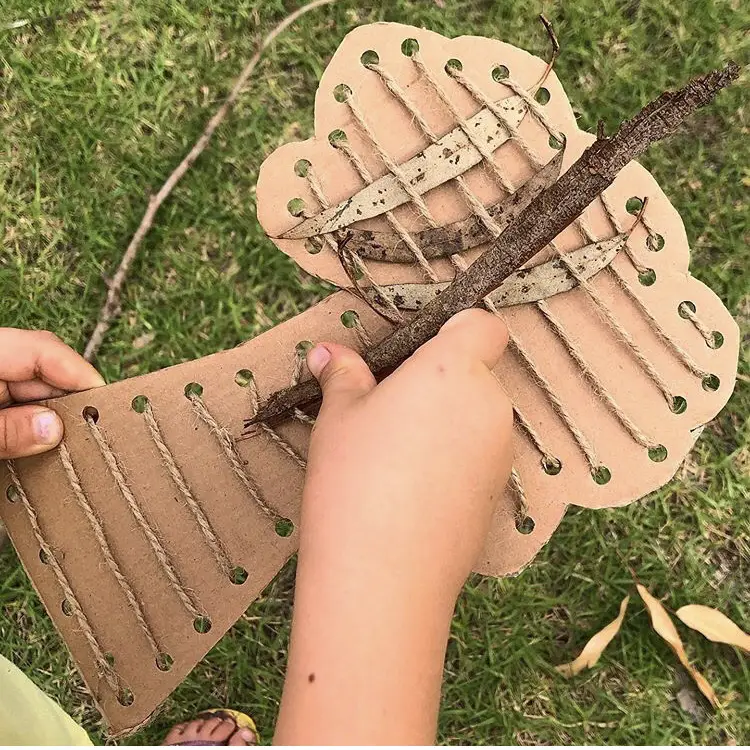
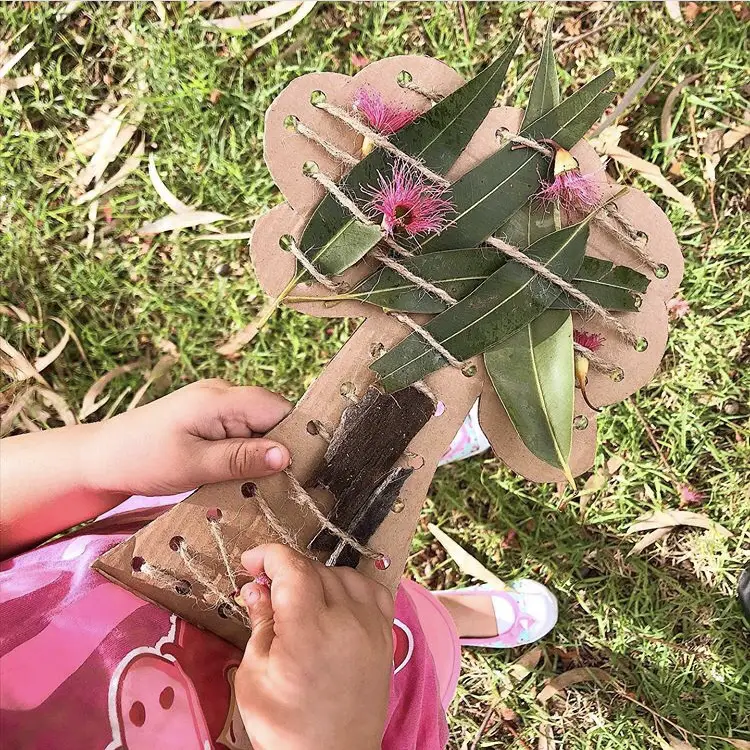
Busy little bodies quickly began collecting treasures, poking them behind the strings of their new nature weaving boards. We were each taking turns in pointing things out to each other. Whether it was an insect carrying out his day, or a strange bark formation, there were so many things, that otherwise would have gone unnoticed.
We had come to this spot as there are lots of ducks and other water birds that inhabit the area. Do you think we could find some duck feathers? Not a single one! Plenty of ducks however not a single duck feather. Luckily for us we have a large flock of corellas that visit the area regularly who had left a trail of feathers in their wake.
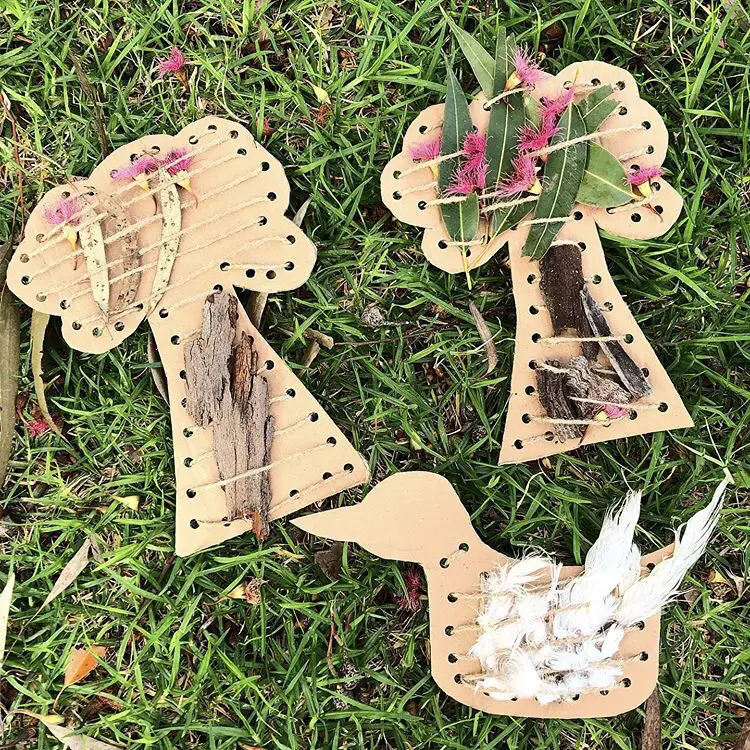
Nature items to collect
This activity really only limited by the integrity of your board. You could collect
- twigs
- wildflowers
- different shape leaves
- grasses
- seeds
- shells
- small stones
Where would be the first place you would visit with your nature weaving board? Would you head to the forest, beach, bushland or down to your local park?
Here are some amazing tips to make exploring the great outdoors more fun with your toddler!
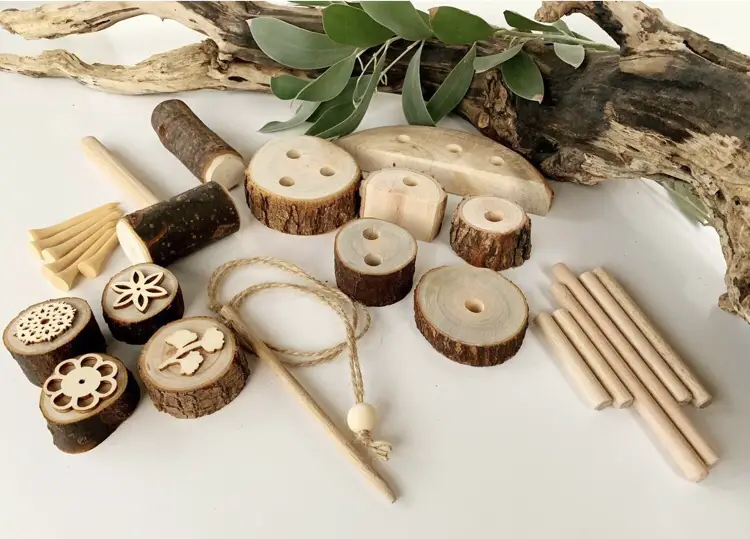
Comprehension Questions
This activity is full of opportunities to learn. In the assembly of the frame to getting amongst nature, us parents and carers will have the chance of really engaging our children in what they are doing. To further help them understand or broaden their understanding, ask them open-ended questions along the way. Throw a stick in the cogs as to say. Bring their attention to an element that would otherwise be overlooked. There are so many sensory experiences at hand when exploring nature.
Here are some open-ended questions that you could ask your child to further develop their comprehension and cognitive thinking skills:
- What do you think we could build from these materials
- When have you seen this shape before
- What are some things that you hope to find
- What do you think is going to be the most challenging part of this activity
- Who do you think would enjoy this activity too
- When would be the best time of day to search for nature treasures
- How long will it take for us to complete the entire board
- How are the fresh leaves different to weave compared to the dry ones
Educational Benefits
Building the frame and then filling its strings with nature treasures will present lots of opportunities to develop and practice lots of skills. When I mention educational benefits, I am referring to a list of skills that are outside of academics. We are talking more than ABCs and 123’s. These are skills that your child will continue to develop well into their adult years to help them perform everyday tasks. These include:
- Fine motor skills
- Bilateral coordination
- Hand-eye coordination
- Crossing the midline
- Problem-solving skills
- Logical thinking skills
- Speech development
- Social skills
- Cognitive thinking skills
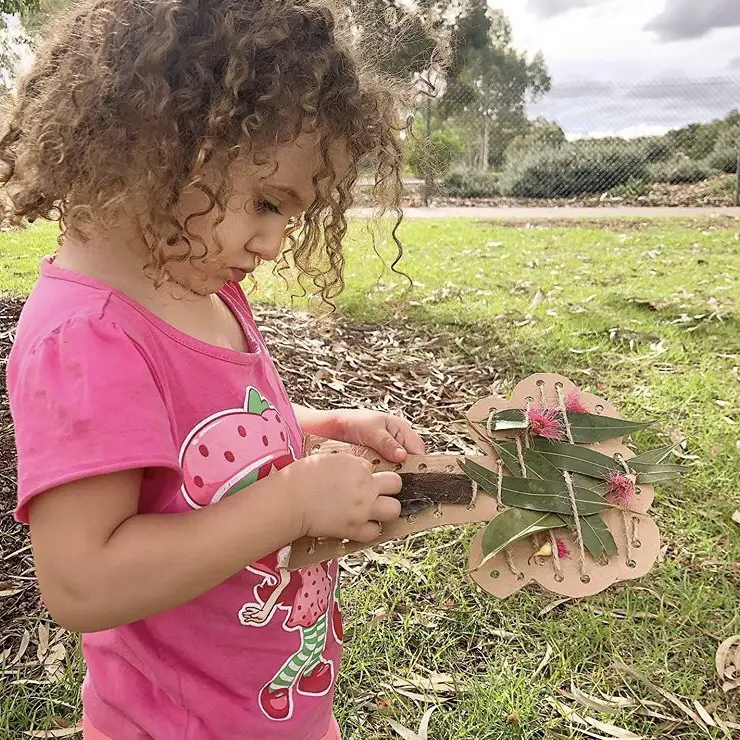
Creating DIY Nature Weaving Boards is a great, inexpensive craft activity and sensory experience for your toddler, preschooler, and even school-age child. Your child can personalise their experience and really take ownership of what they create and choose to collect. Next time you head out for some outdoors fun, why not pop a weaving board together to add to your children’s play?
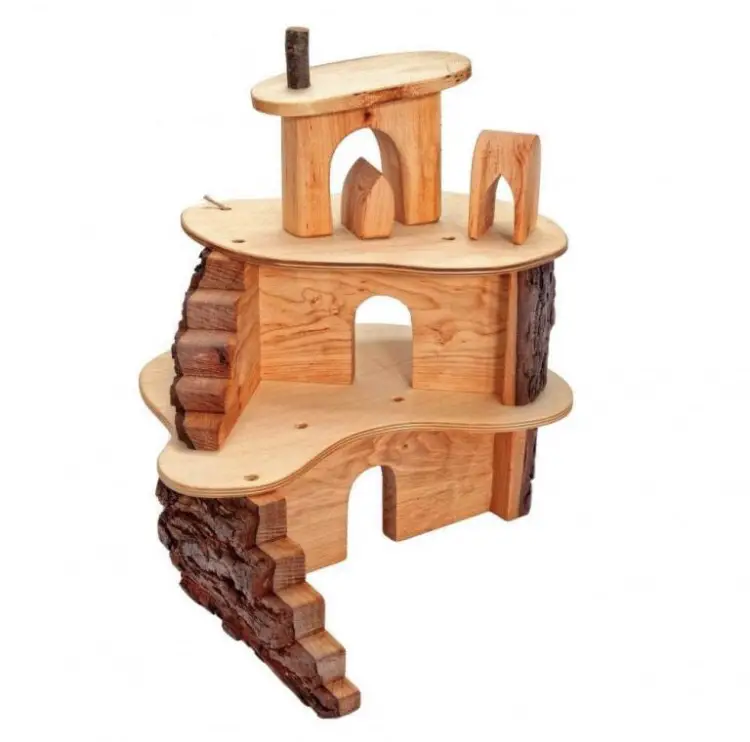
We would love to see your child’s creations! Feel welcome to share your experience in our Play Inspired Mum Facebook community!
Dani D x
